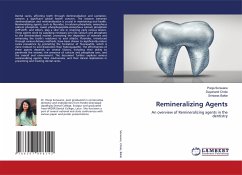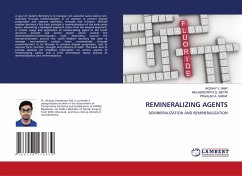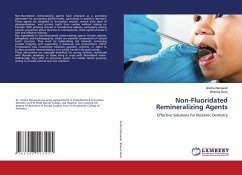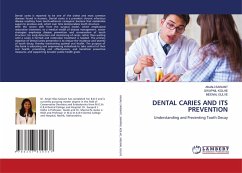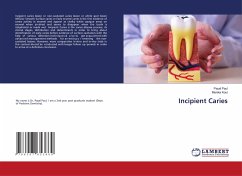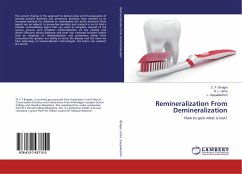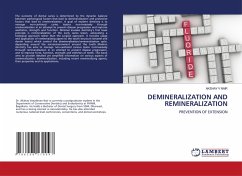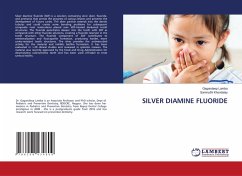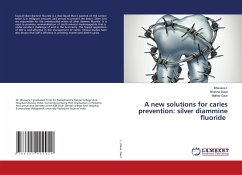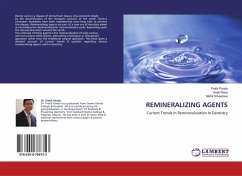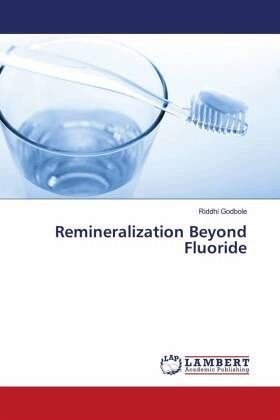
Remineralization Beyond Fluoride
Versandkostenfrei!
Versandfertig in 6-10 Tagen
45,99 €
inkl. MwSt.

PAYBACK Punkte
23 °P sammeln!
Dental caries is not merely a continuous and one-way process of demineralization of the mineral phase, but repeated episodes of demineralization and remineralization. The remineralization process is a natural repair mechanism to restore the minerals again, in ionic forms, to the hydroxyapatite (HAP) crystal lattice. It occurs under near-neutral physiological pH conditions whereby calcium and phosphate mineral ions are redeposited within the caries lesion from saliva and plaque fluid resulting in the formation of newer HAP crystals, which are larger and more resistant to acid dissolution. This ...
Dental caries is not merely a continuous and one-way process of demineralization of the mineral phase, but repeated episodes of demineralization and remineralization. The remineralization process is a natural repair mechanism to restore the minerals again, in ionic forms, to the hydroxyapatite (HAP) crystal lattice. It occurs under near-neutral physiological pH conditions whereby calcium and phosphate mineral ions are redeposited within the caries lesion from saliva and plaque fluid resulting in the formation of newer HAP crystals, which are larger and more resistant to acid dissolution. This era of personalized care using the medical model for caries management assimilates the signs of examining, diagnosing, intercepting, and managing dental caries at a microscopic level. Fluoride mediated salivary remineralization system is considered the cornerstone of a non-invasive approach for managing non-cavitated carious lesions. However, the effect of fluoride was found to be limited tothe outer surface of the tooth, and it was observed that fluoride does not influence the modifiable factors in dental caries such as the biofilm.



